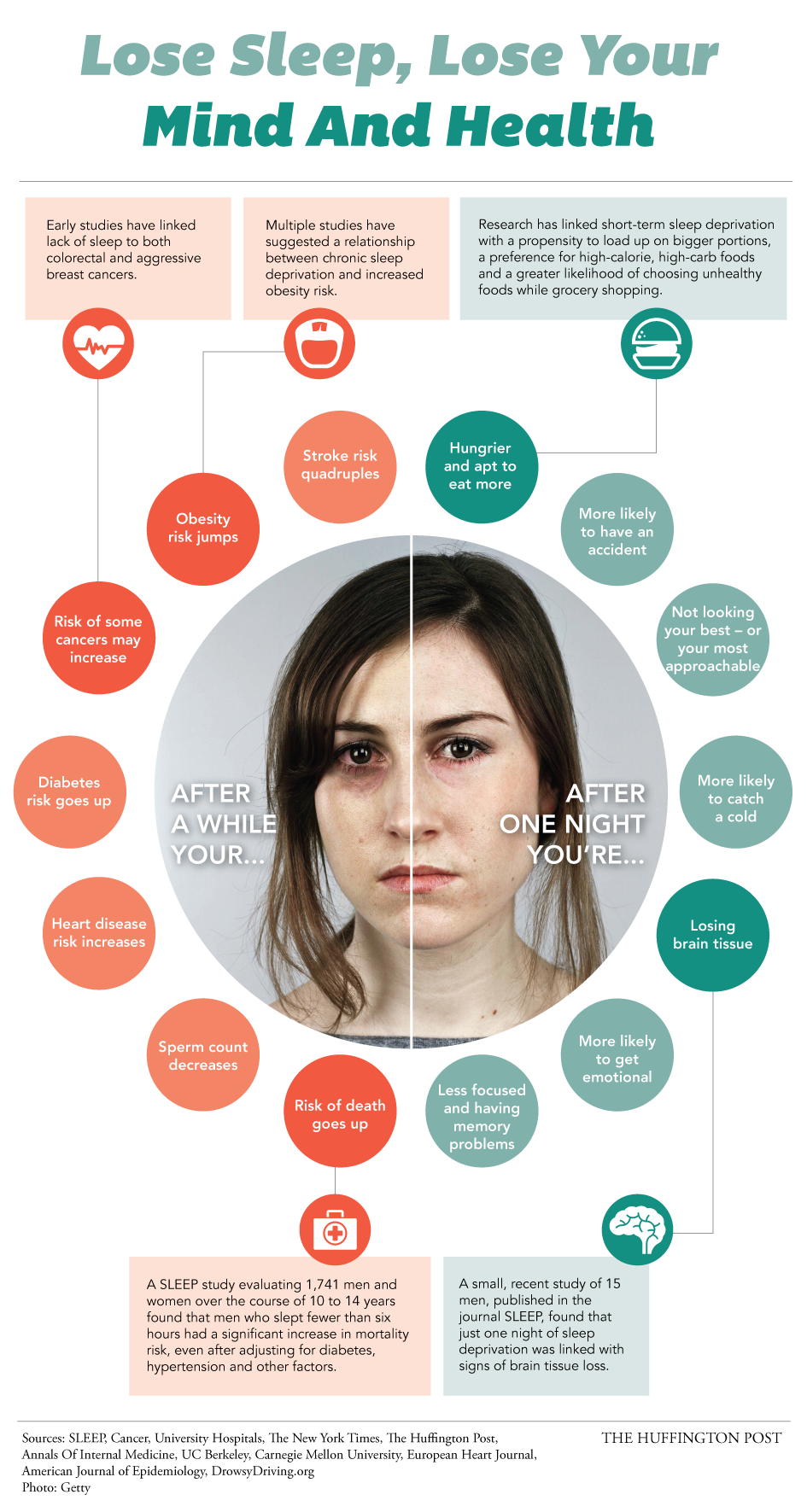Sleep Deprivation & What It Does To Your Health
Jan 10, 2014 20:55

There comes a point in life when sleeping in really does feel like a luxury. Studies have shown that just one week of sleeping fewer than six hours a night can result in changes to more than 700 genes. To find out more on the other detrimental health effects from not getting tenough shut-eye, keep reading:
Feeling Hungrier, Eating More
Studies have linked short-term sleep deprivation with a propensity to load up on bigger portions, a preference for high-calorie, high-carb foods and a greater likelihood of choosing unhealthy foods while grocery shopping.
More Likely To Get Into An Accident
Getting six or fewer hours of shut-eye a night triples your risk of drowsy driving-related accidents, according to the National Sleep Foundation's Drowsydriving.org. Plus, just one bad night's sleep can affect a driver's eye-steering coordination, according to research from Manchester Metropolitan University. And sleep deprivation can just make you generally more clumsy, whether you're behind the wheel or not, reports Prevention.
Affects How "Approachable" You Look
A small study published last year in the journal SLEEP found that sleep deprived study participants were rated as less attractive and sadder, HuffPost reported at the time. A different study from the Medical Institutet Karolinska in Stockholm, Sweden found that exhausted people are also judged to be less approachable. And the problem only gets worse over time: Researchers have linked chronic sleep deprivation with skin aging.
Weakens Your Immune System
Proper rest is one of the building blocks of a healthy immune system. In fact, one Carnegie Mellon University study found that sleeping fewer then seven hours a night was associated with a tripled risk of coming down with a cold.
Loss Of Brain Tissue
A small, recent study of 15 men, published in the journal SLEEP, found that just one night of sleep deprivation was linked with signs of brain tissue loss, measured by blood levels of two brain molecules that usually increase after brain damage.
Messes With Your Emotions
One 2007 study from researchers at the University of California, Berkeley and Harvard Medical School used functioning Magnetic Resonance Imaging to show that after sleep deprivation, the brain's emotional centers were more more than 60 percent more reactive. "It's almost as though, without sleep, the brain had reverted back to more primitive patterns of activity, in that it was unable to put emotional experiences into context and produce controlled, appropriate responses," senior author Matthew Walker, director of UC Berkeley's Sleep and Neuroimaging Laboratory, said in a statement. "Emotionally, you're not on a level playing field."
Less Focused, More Memory Problems
Being exhausted zaps your focus, and can render you more forgetful (no wonder you keep misplacing your cell phone after a bad night between the sheets). On top of that, sleep is thought to be involved in the process of memory consolidation, according to Harvard, which means shortchanging it can make it more difficult to learn and retain new things.
[Huffington Post]







































































